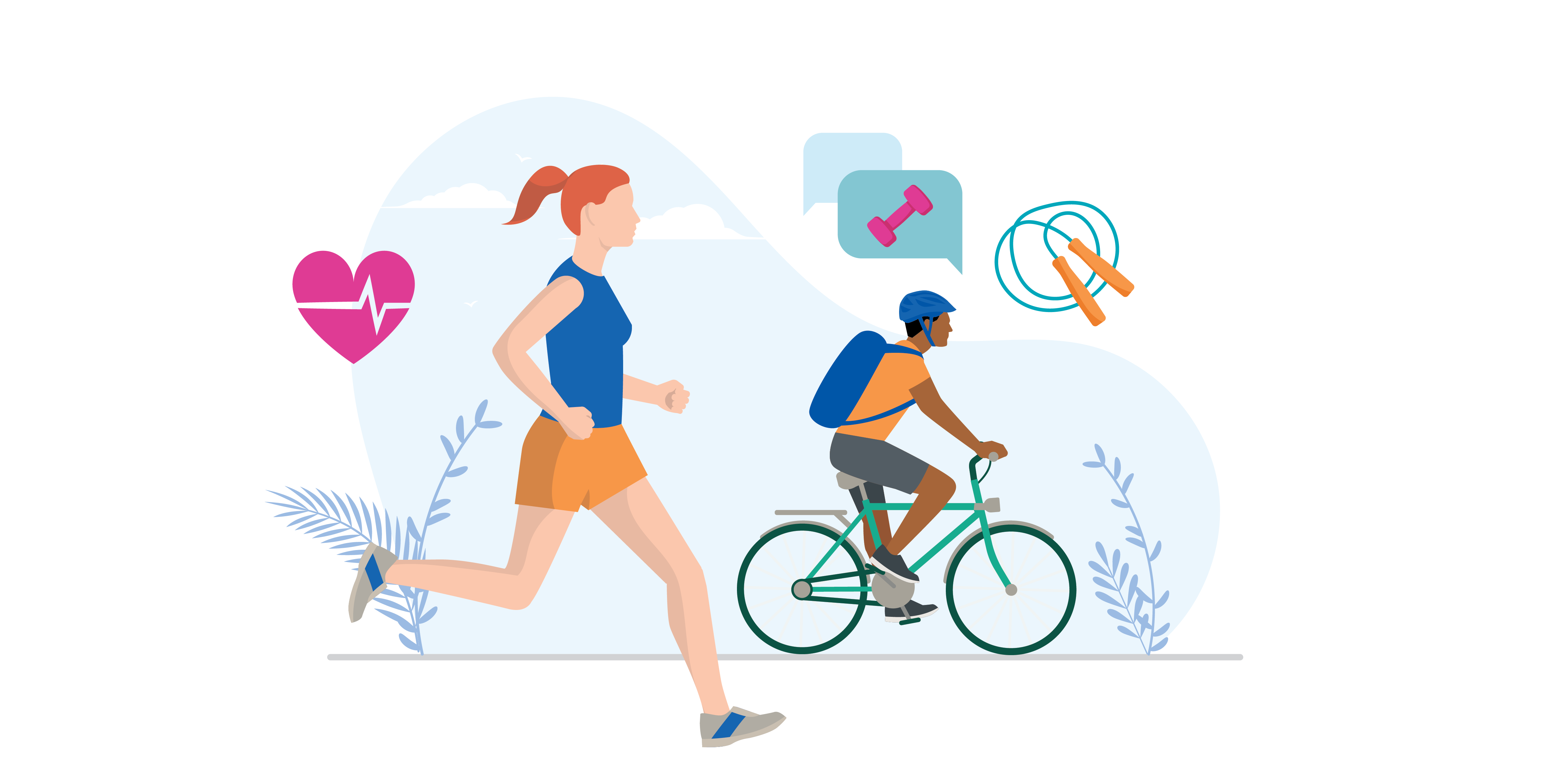Blood pressure
All you need to know to understand blood pressure and what your numbers mean.

What is blood pressure?
Blood pressure is the pressure of blood in your arteries. Your arteries are the vessels (tubes) that carry blood from your heart to your brain and the rest of your body. You need a certain amount of pressure to get the blood moving around your body.
Your blood pressure naturally goes up and down throughout the day and night, and it's normal for it to go up while you're moving about. It's when your overall blood pressure is always high, even when you are resting, that you need to do something about it.
Blood pressure is measured using two numbers:
- Systolic pressure: this is the higher of the two numbers. It's the pressure against your arteries when your heart is pumping blood around your body.
- Diastolic pressure: this is the lower of the two numbers. It shows how much pressure is in your arteries when your heart relaxes between beats.
What is high blood pressure (hypertension)?
The medical term for high blood pressure is 'hypertension', and it means your blood pressure is always too high. This means your heart is working harder when pumping blood around your body.
High blood pressure (hypertension) affects more than one in four adults in England. High blood pressure is not typically something you can feel.
However, you are more likely to develop coronary heart disease or have a stroke if you have high blood pressure. In England, high blood pressure is the number one risk factor for cardiovascular disease related death and disability. This is why it is important to know your blood pressure numbers.

What is a healthy or normal blood pressure?
There are two categories of normal blood pressure:
- Normal blood pressure is usually considered to be between 90/60 mmHg and 120/80 mmHg. For over-80s, because it's normal for arteries to get stiffer as we get older, the ideal blood pressure is under 150/90 mmHg (or 145/85 mmHg at home).
- High-normal blood pressure, sometimes called 'pre-hypertension', is when you don't have an ideal blood pressure but you also don't have high blood pressure. It's usually considered to be between 120/80 mmHg and 140/90 mmHg. Being at this level might prompt you to live a healthier lifestyle so you don't develop high blood pressure.
The NHS has a handy tool to show where your blood pressure is on a chart.
What causes high blood pressure?
In most cases, there isn't a specific reason for the cause of high blood pressure, but most people develop it because of their diet, lifestyle or medical condition.
You might be more at risk if you:
- are over the age of 65
- have someone in your family with high blood pressure
- are someone who smokes
- drink too much alcohol
- eat too much salt and not enough fruit and vegetables
- don't get enough exercise
- are overweight, especially around your mid-section.
People living in deprived areas are also at higher risk of having high blood pressure, as well as people who are of black African or black Caribbean descent. Changes in your diet and increasing activity levels will help improve your blood pressure.
How do I get a blood pressure check?
That is easy! You can have your blood pressure checked at your GP practice or at your local pharmacy. The check only takes 10 minutes and it could save your life.
A new service finder on NHS.uk allows healthcare professionals and patients to search for and find a pharmacy that offers free blood pressure checks. The tool explains who is eligible to go to a pharmacy to get their blood pressure checked and can be searched using a postcode, with the nearest pharmacy listed first.
You can also view this map to find a pharmacy providing BP checks in Surrey, make sure you contact them to double check their availability.
BP+ 'Reducing risk of stroke in Surrey Heartlands'
Useful links
- Surrey County Council - Home equipment finder
Use the home equipment finder to buy things that can help you stay well and independent at home.